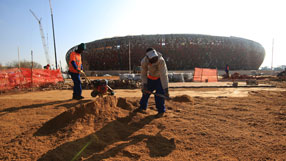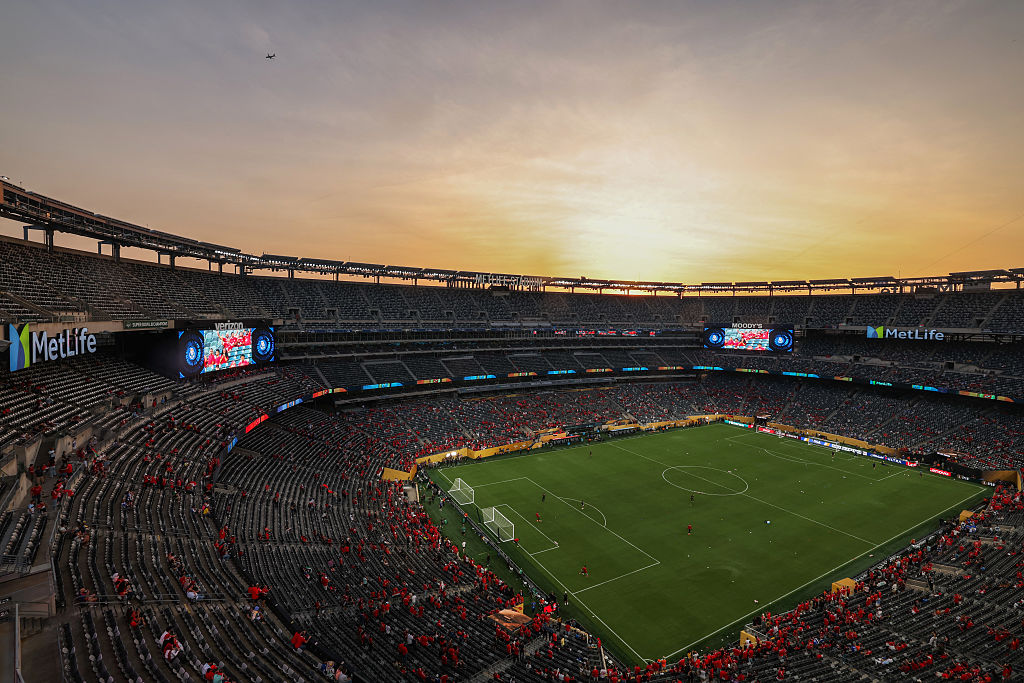
South Africa's construction workers are nearing a deal with employers to end a strike that is holding up work on stadiums for the 2010 World Cup, but are still locked in talks with employers about efforts to block their right to strike again.
The wave of industrial action poses a challenge for President Jacob Zuma, who is grappling with the country's first recession in 17 years and has little room to meet the demands of union allies flexing their muscles since he took office in May.
Zuma was propelled to power partly by support from the ruling African National Congress's leftist allies, including the powerful trade unions. It has pledged to support poor elements of the population, but not at the expense of big business.
Analysts say his hands are tied by the economic slowdown, leaving him little room to placate unions who have been emboldened by his ascent to power.
Companies, too, are battling a slump in demand, and are under pressure from shareholders to curtail costs.
A South African union representing workers in the energy, paper and pharmaceuticals sectors said on Tuesday it would launch a strike over pay after wage negotiations with employers failed, threatening supplies of fuel and medicine.
Employers in the sectors include paper makers Sappi, Mondi and petrochemicals group Sasol.
The best features, fun and footballing quizzes, straight to your inbox every week.
GOLD STRIKE "HIGHLY LIKELY"
Workers in the gold sector, one of South Africa's most important, have rejected the latest wage hike offer by the gold producers of between 8 and 10 percent and a strike is "highly likely", the National Union of Mineworkers (NUM) said.
"NUM has this morning rejected the Chamber of Mines' offer of between 8 and 10 percent from gold employers and will escalate the dispute on July 21," NUM spokesman Lesiba Seshoka said. "A strike is highly likely," he added later.
The wage talks are being watched closely by markets because a strike could affect production, metal prices and the shares of mining firms such as AngloGold Ashanti, Harmony and Gold Fields.
In the construction sector, workers have been striking since Wednesday, paralysing work on 2010 World Cup football stadiums.
The NUM, whose members also include construction workers, said it was nearing a deal with employers on the latest wage offer of 11.5 percent, but they opposed efforts by employers to ban further industrial action.
The union is due to meet building employers again on Tuesday afternoon to discuss differences over whether future strikes would be allowed and would hold a media conference later.
"Our members are willing to accept the offer on certain conditions," NUM's Seshoka said.
"If they remove that (right to strike) then we will not accept the agreement. If they come with nonsense around this issue then there is no way we will accept," Seshoka added later.
Hundreds of striking workers chanted and sang songs outside the flagship stadium in Soweto, near Johannesburg. Talk 702 radio said they stormed two stadium sites to stop labourers who had returned t
 Join The Club
Join The Club





